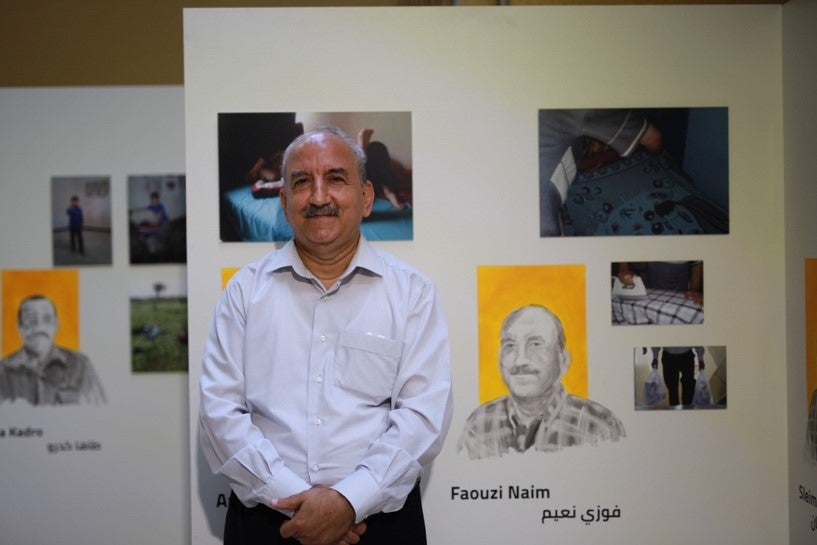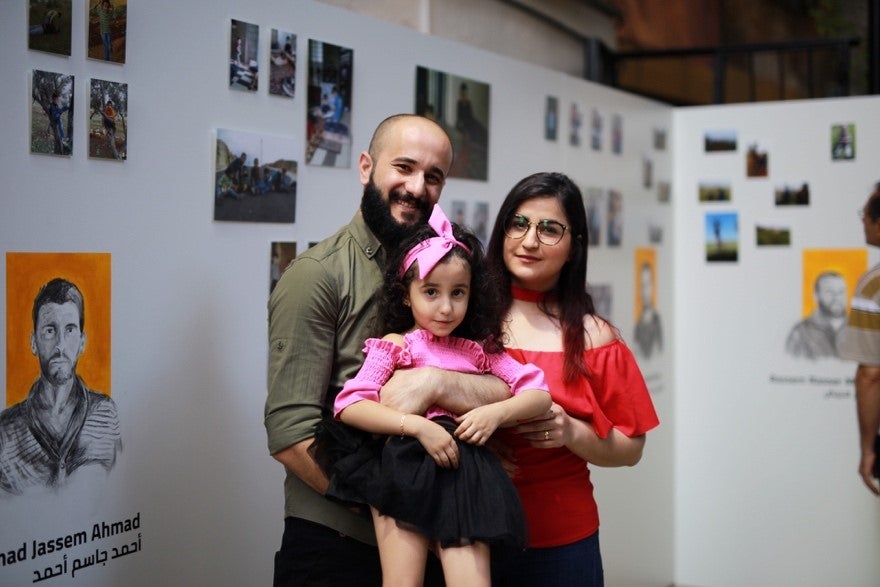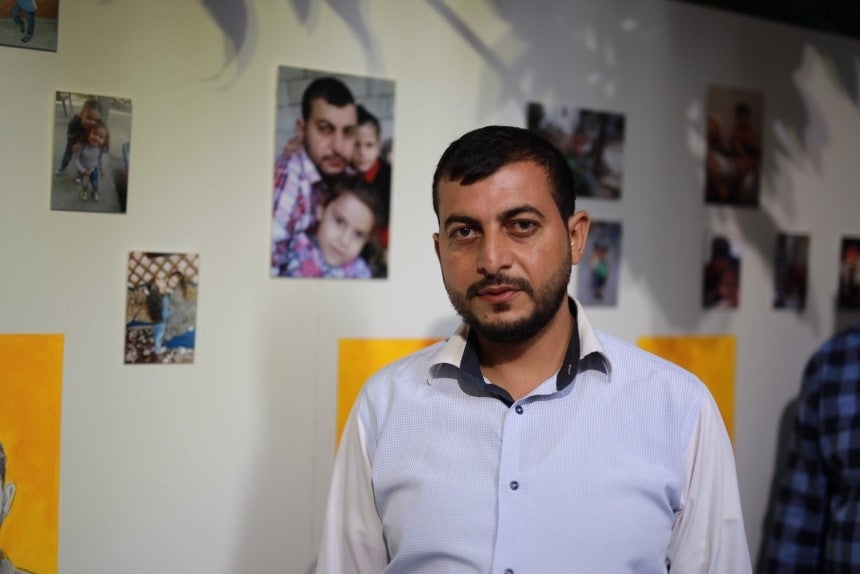Men in Lebanon explore positive fatherhood through photo exhibition
Date:
A group of men from Iraq, Syria and Lebanon participated in the photo exhibition ‘Through My Father’s Eyes’, organized by CARE International and UN Women, aimed at showcasing stories of positive fatherhood.
The exhibition followed a project conducted in Beirut and Tripoli to engage men in promoting positive models of fatherhood, as part of the UN Women regional programme ‘Men and Women for Gender Equality’ funded by the Swedish International Development Cooperation Agency (SIDA). The initiative included discussion groups and photography training conducted by the Beirut Center of Photography, to explore examples of positive fatherhood.
UN Women spoke to some of the participants about their experience.
Faouzi Naim

“As a refugee, life is hard enough for my family. Thus, I tend to be a kind father who listens and acknowledges, rather than controls.
During the training, I used to take notes and read them to my wife and two sons who are also young fathers, and discuss with them how can we all be better parents to our children. For me, being democratic, passionate, a good listener and a friend can improve the relationships and dialogue within the family.”
Nourman Essam

“Prior to the training, I felt ashamed to push my daughter’s stroller in the street because people used to tell me to ‘man-up’. Now I don’t feel that this negatively affects my manhood anymore. On the contrary, I feel closer to my family. It was only after I received the training sessions that I became aware of the principles of positive fatherhood.
Raising a child is never easy. Raising a child in a way that counters the socially accepted norms is even harder. I was raised in a tribal and rural community where family and peers used to tell us to ‘man-up’. If a husband supported his wife in the household, they would call him a ‘man controlled by his woman’. Today, when I receive such comments, I push back with actions! Now, I push my daughter’s stroller and play with her publicly, because it’s not a shame for me anymore; it means I am a good father.”
Khaled Khedr Seif

“For me, the best way to raise a child is by example, as children follow by example. I want my children to form a positive family in the future, where they share the care. A father should be kind and sympathetic, he should dedicate time to his family as a priority. Yes, we do come back home tired from work and life pressures, but this shouldn’t stop us from being part of our families and children’s lives.
To be honest, I wasn’t so keen to participate in housekeeping prior to the training, due to social norms that confine men and women to certain gender roles. And if I did, I would do it secretly to avoid being bullied by my peers. After long discussions with the trainers and other fathers, I understood I was wrong!
I even started a plan to challenge such negative gender norms. I call it “Equal Parenting”. The plan includes some key principles: letting each kid decide their own priorities and support them moving forward, rather than telling them what to do; acknowledging ingrained and institutionalized pushback; pointing out and defusing stereotypes; showing them instead of telling them, being an example; openly challenging the norm in the community; and most importantly: holding the same standards for boys and girls as much as possible.”
Key findings of the 2017 International Men and Gender Equality survey (IMAGES MENA) Lebanon - a study conducted by UN Women, Promundo-US and Connecting Research to Development (CRD) highlights the important role fathers can play in child care and in promoting gender equality. -. As part of the Men and Women for Gender Equality Programme, men and adolescent boys were engaged in dialogues to discuss their role and responsibility as fathers, brothers, husbands, and potential husbands to promote gender equality and child development.